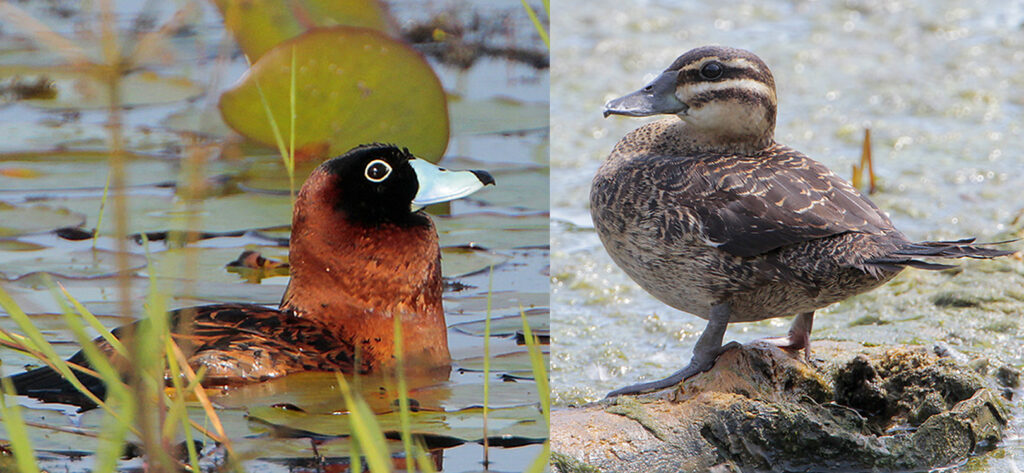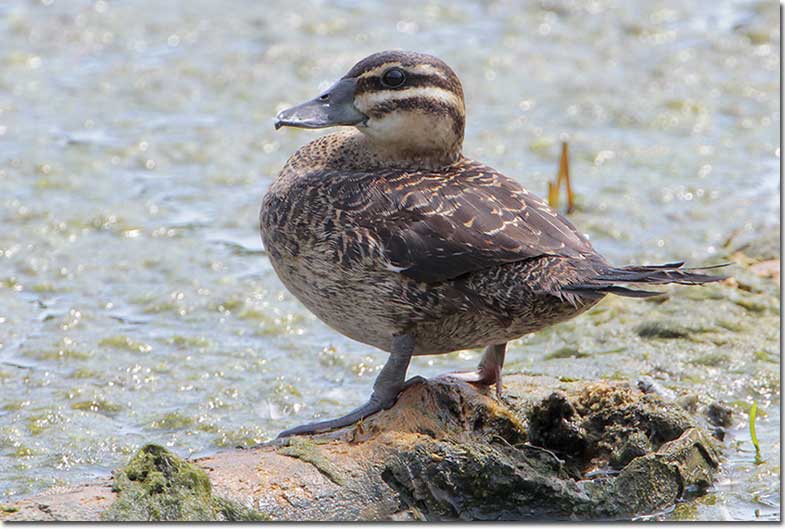The Masked Duck is a little known, small stiff-tailed duck. Reported as shy, but a single male wintering for several years in Florida was aggressive in chasing Blue-winged Teal and Moorhens.
On this page
Description of the Masked Duck
BREEDING MALE
– Rust-colored body.
– Black face.
– Dark mottling on wings.
– Blue bill with dark tip.
– Stiff tail may be up or down.
– White wing patch more obvious in flight.
– Length: 13in. Wingspan: 17in.

Photograph © Greg Lavaty.
Female
– Barred brownish gray body.
– Two horizontal darkly colored stripes running across buff colored face.
– Grayish bill.
Seasonal change in appearance
Male resembles female with two dark bars on face. Grayish bill.
Juvenile
Resembles female.
Habitat
Freshwater marshes. Ponds with vegetation.
Diet
Seeds, roots and leaves of aquatic plants. Also aquatic insects and crustaceans.
Behavior
Feed by diving. Can be aggressive toward other small waterfowl.
Range
Mexico to South America. Rare visitor to southern Texas and Florida.
Fun Facts
Males play a minor role in care of the young. The species has not been well-studied.
Vocalizations
Generally silent. May give hisses or puffing sounds.
Similar Species
- Ruddy Duck
Male in breeding plumage lacks the solid black face.
Females and non-breeding males have single bar on the face.
Nesting
Nests from October to August, varies by location. Nest is a deep cup, sometimes covered.
Number: Usually 4 to 8.


